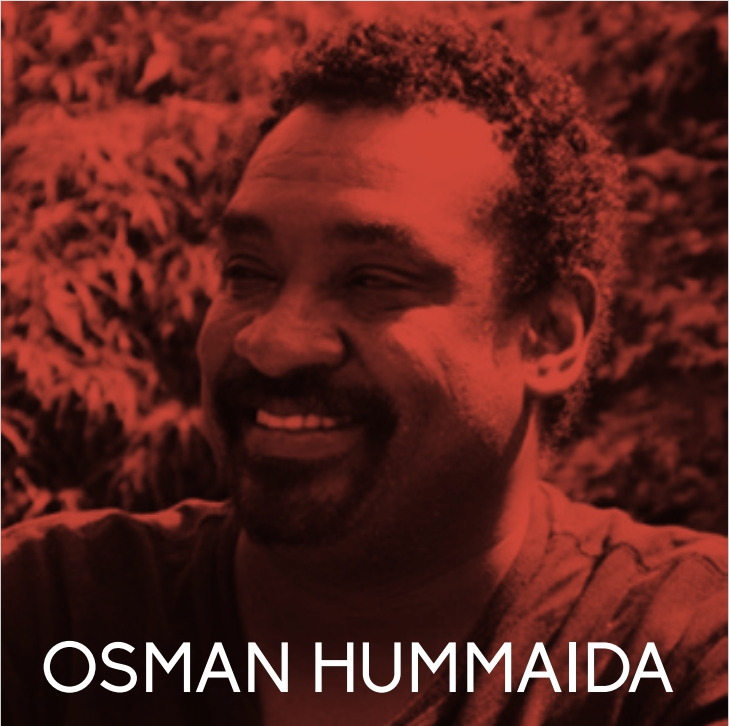For leading Burundian human rights defender Pierre Claver Mbonimpa, the colour green serves as a daily reminder of his ongoing incarceration. As the Burundian state intensifies its clampdown on civil society space, Mbonimpa’s detention illustrates the grave risks facing human rights defenders who speak out on the country’s escalating political crisis, said the East and Horn of Africa Human Rights Defenders Project (EHAHRDP) today.
Since his arrest twelve days ago ago on baseless charges of endangering national security, Mbonimpa has been forced to don the green cotton uniform of the Prison Centrale de Mbimpa, where he remains in detention. Last Friday – as Mr Mbonimpa appeared before the Tribunal of First Instance of Bujumbura (Tribunal de Grand Instance) – fellow Burundians and supporters around the world wore green in a display of solidarity with Mbonimpa, launching what has become known as the ‘Green Friday Movement’,
Yesterday, the Tribunal handed down its decision, confirming the ongoing detention of Mr. Mbonimpa. In response, the Green Friday Movement has announced another week of solidarity activities, which activist Pacifique Nininahazwe hopes will “turn the colour green from a symbol of Mbonimpa’s humiliation to a symbol of pride and hope”, and in doing so amplify the growing calls for Mbonimpa’s immediate release.
Mr. Mbonimpa, the President of the Association for the Protection of Human Rights and Detained Persons (APRODH) and a senior figure in the Burundian human rights movement, was arrested in the early hours of 16 May, 2014. A former police officer and prisoner himself, he founded APRODH in 2000 to protect the human rights of all Burundians. He has received international recognition for his work and commitment, including the 2007 Martin Ennals Award and 2001 Prix Henry Dunant.
Mr. Mbonimpa has been charged with endangering internal security by inciting riot, endangering external security by creating conflict with the Democratic Republic of Congo, and forgery. The charges relate to Mbonimpa’s appearance on Burundian radio station Radio Publique Africaine on 6 May 2014, during which he stated that members of the ruling National Council for the Defense of Democracy – Forces for the Defense of Democracy (CNDD-FDD) youth wing, known as the Imbonerakure, are receiving military training in neighbouring Democratic Republic of Congo (DRC). He subsequently produced a photograph supporting his claims, now the subject of the forgery charge. Mr. Mbonimpa was summoned to meet with judicial police on 7 May and again on 12 May, where he answered questions relating to his comments. His lawyer answered another summons and met with judicial police on 14 May. He had been expecting to meet with judicial police again on 19 May, but was arrested before the meeting could take place.
The arrest of Mr. Mbonimpa is illustrative of the mounting risks facing human rights defenders, as political tensions in Burundi continue to escalate. This year has seen an unraveling of the delicate power balance brokered in the 2000 Arusha Peace and Reconciliation Agreement, which was instrumental to ending 12 years of civil conflict in 2005. In recent months, the state and its security forces has suspended opposition political parties, arrested peaceful protestors en masse, and the ruling party has sought to amend the Constitution so that President Pierre Nkurunziza can further entrench his power via a third Presidential term.
As political insecurity has mounted, so too have the pressures on human rights defenders. Human rights activists and journalists have reported harassment and threats throughout 2014, and have described to EHAHRDP a rapidly contracting space for civil society. EHAHRDP is especially concerned by legal and extra-legal restrictions targeting human rights defenders working on governance and anti-corruption issues.
Mr. Mbonimpa’s public statements touched a particularly raw nerve for the ruling party. In April, local and international media reported on an apparently leaked internal UN cable, which claimed that weapons and uniforms were being distributed to youth militias affiliated with the CNDD-FDD, including the Imbonerakure. On 14 May, just one day before the arrest of Mr. Mbonimpa, UN Secretary-General Ban Ki-moon’s Special Representative Parfait Onanga-Anyanga warned the UN Security Council of the possibility of violence, including between youths affiliated with political parties in the run up to elections. He also emphasized that the current limited political space is not conducive to protection of human rights.
Mbonimpa’s arrest and ongoing detention should be a cause for alarm for the international community, and in particular for Burundi’s international development partners. “Pierre Claver Mbonimpa has dedicated himself for over a decade to the protection of human rights in Burundi,” said Executive Director of East and Horn of Africa Human Rights Defenders Project, Mr. Hassan Shire. “The charges against him lack all credibility, and are a transparent attempt to prevent him from doing his work, precisely at the moment when it is most needed”.
Mbonimpa’s arrest also makes the actions of his supporters in the Green Friday Movement all the more important and courageous. Their efforts- to claim a space for human rights defenders to promote and protect human rights in Burundi- are critical to the future of the country.
EHAHRDP calls on the Government of Burundi to honour its commitments under regional and international human rights law, including the right to a fair trial under Article 14 of the International Covenant on Civil and Political Rights, and immediately order Mbonimpa’s release.
For more information, please contact:
Hassan Shire, Executive Director, East and Horn of Africa Human Rights Defenders Project/ Chairperson, Pan-African Human Rights Defenders Network on: [email protected] or +256 772 753 753
John Foley, Advocacy & Research Officer, East and Horn of Africa Human Rights Defenders Project/ Pan-African Human Rights Defenders Network on: [email protected] or +256 789 650 996

